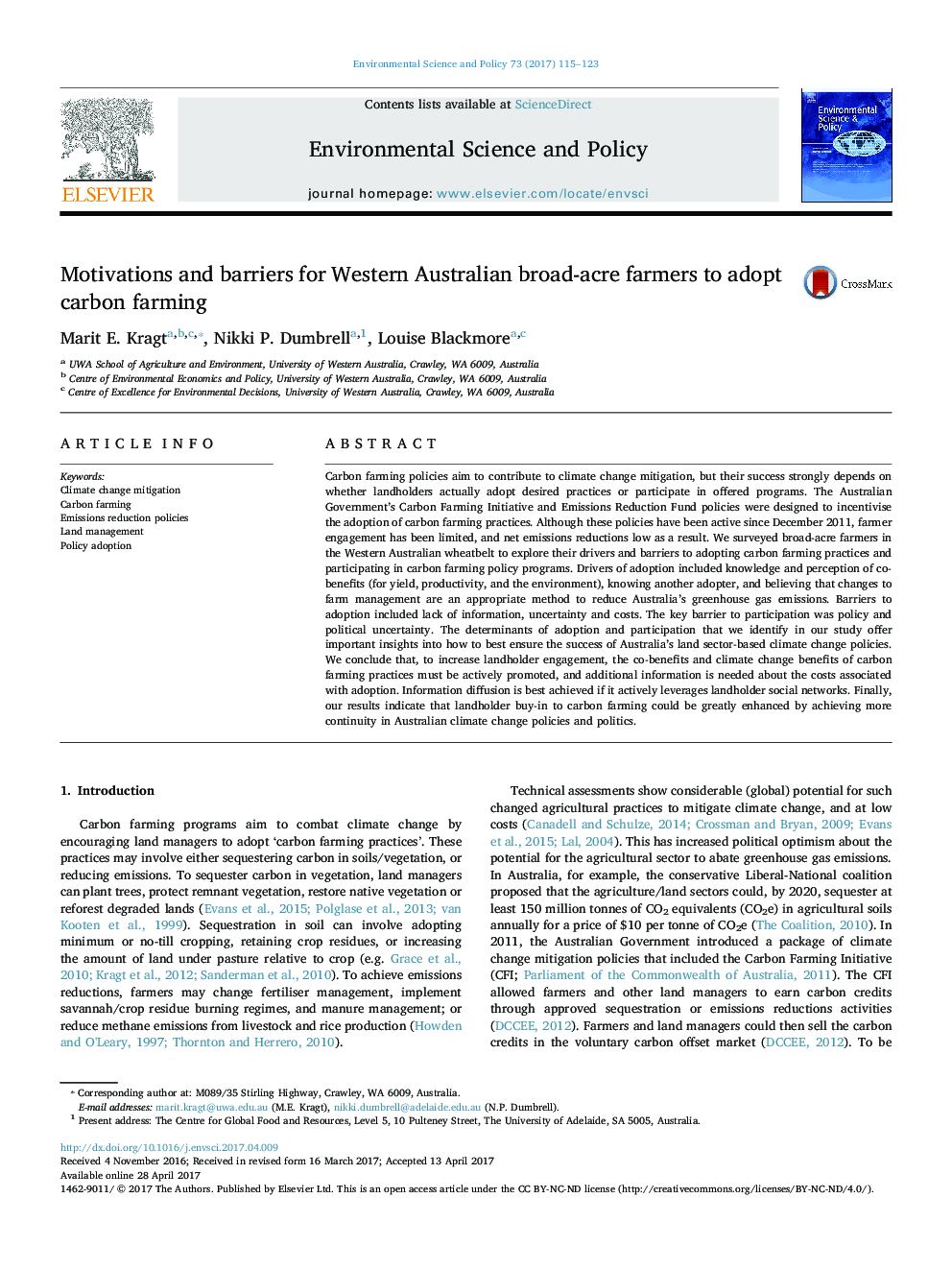| کد مقاله | کد نشریه | سال انتشار | مقاله انگلیسی | نسخه تمام متن |
|---|---|---|---|---|
| 5115857 | 1485035 | 2017 | 9 صفحه PDF | دانلود رایگان |
- Farmers in Western Australia were surveyed about climate change mitigation practices.
- Few farmers were participating in formal carbon farming policy schemes.
- Perceptions of co-benefits were important drivers of adoption.
- A lack of information and policy uncertainties were the main barriers.
- Demonstrating environmental, socio-economic and financial benefits could help increase engagement.
Carbon farming policies aim to contribute to climate change mitigation, but their success strongly depends on whether landholders actually adopt desired practices or participate in offered programs. The Australian Government's Carbon Farming Initiative and Emissions Reduction Fund policies were designed to incentivise the adoption of carbon farming practices. Although these policies have been active since December 2011, farmer engagement has been limited, and net emissions reductions low as a result. We surveyed broad-acre farmers in the Western Australian wheatbelt to explore their drivers and barriers to adopting carbon farming practices and participating in carbon farming policy programs. Drivers of adoption included knowledge and perception of co-benefits (for yield, productivity, and the environment), knowing another adopter, and believing that changes to farm management are an appropriate method to reduce Australia's greenhouse gas emissions. Barriers to adoption included lack of information, uncertainty and costs. The key barrier to participation was policy and political uncertainty. The determinants of adoption and participation that we identify in our study offer important insights into how to best ensure the success of Australia's land sector-based climate change policies. We conclude that, to increase landholder engagement, the co-benefits and climate change benefits of carbon farming practices must be actively promoted, and additional information is needed about the costs associated with adoption. Information diffusion is best achieved if it actively leverages landholder social networks. Finally, our results indicate that landholder buy-in to carbon farming could be greatly enhanced by achieving more continuity in Australian climate change policies and politics.
Journal: Environmental Science & Policy - Volume 73, July 2017, Pages 115-123
